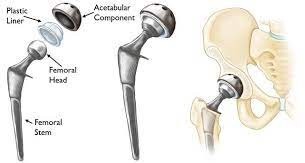Which symptom is most indicative of pneumonia in a 6-year old child?
Sore throat.
Tympany noted on chest percussion.
Auscultation of ronchi or fine crackles.
Temp of 37.8 Celsius.
The Correct Answer is C
Pneumonia is an infection that causes inflammation in the lungs. Auscultation refers to listening to the sounds produced by the lungs using a stethoscope. Ronchi and fine crackles are abnormal lung sounds that can be heard during auscultation in individuals with pneumonia.
These sounds are associated with the presence of fluid or mucus in the lungs, which is characteristic of pneumonia.
While other symptoms such as a sore throat, tympany noted on chest percussion, and a slightly elevated temperature (37.8 degrees Celsius) can be present in various respiratory conditions, the auscultation findings of ronchi or fine crackles specifically suggest an underlying lung infection like pneumonia.
Nursing Test Bank
Naxlex Comprehensive Predictor Exams
Related Questions
Correct Answer is A
Explanation
Glipizide is an oral antidiabetic medication commonly prescribed to manage type 2 diabetes. It works by stimulating the release of insulin from the pancreas, which helps lower blood glucose levels. However, there is a risk of hypoglycemia (low blood sugar) with the use of Glipizide.
It is crucial for the client to be aware of the signs and symptoms of hypoglycemia so that they can take appropriate action if their blood sugar drops too low. These symptoms may include sweating, trembling, dizziness, confusion, weakness, and hunger. By recognizing these signs, the client can promptly address hypoglycemia by consuming a source of fast-acting glucose, such as fruit juice or glucose tablets, as instructed by their healthcare provider.
Correct Answer is C
Explanation
The patient bending over the sink while brushing teeth requires intervention by the nurse. After hip arthroplasty using the posterior approach, the patient should avoid bending at the hip greater than 90 degrees to prevent dislocation of the prosthesis. The nurse should instruct the patient to bend at the knees instead of the hips while brushing teeth or doing any other activity that requires bending. The other actions mentioned in the options are appropriate for a patient after hip arthroplasty.

Whether you are a student looking to ace your exams or a practicing nurse seeking to enhance your expertise , our nursing education contents will empower you with the confidence and competence to make a difference in the lives of patients and become a respected leader in the healthcare field.
Visit Naxlex, invest in your future and unlock endless possibilities with our unparalleled nursing education contents today
Report Wrong Answer on the Current Question
Do you disagree with the answer? If yes, what is your expected answer? Explain.
Kindly be descriptive with the issue you are facing.
